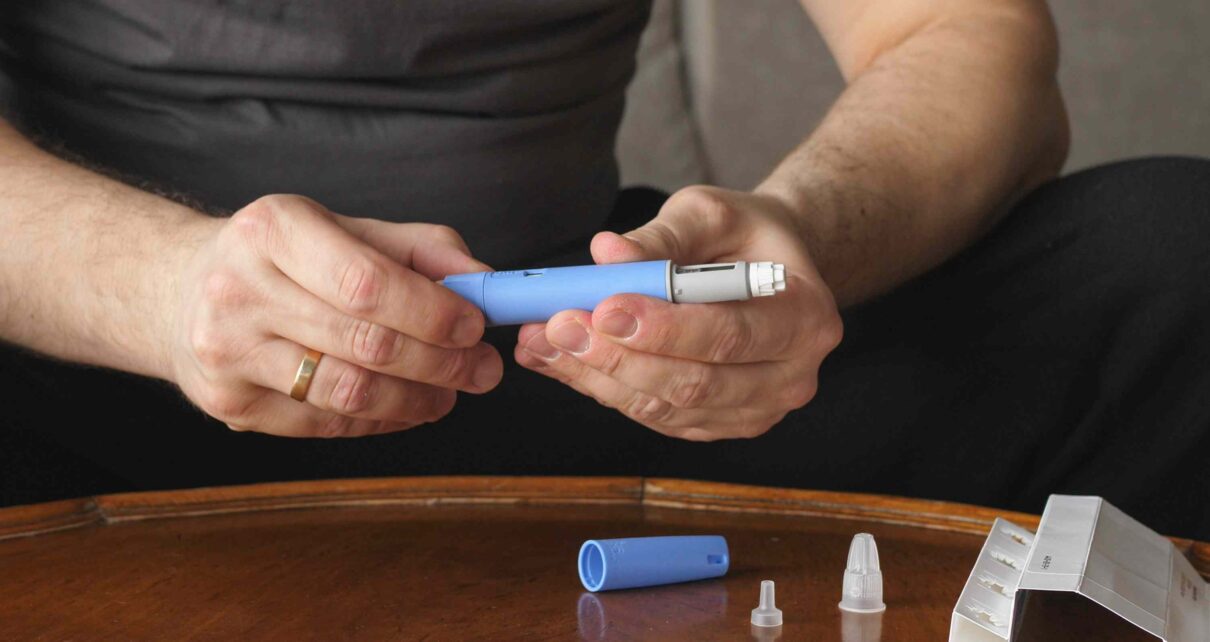Losing weight is a big achievement, but maintaining that loss over time — that’s where the real challenge begins. Many people experience the frustration of seeing pounds creep back after all their hard work. This is where a GLP-1 doctor plays a vital role. Beyond prescribing medication, these specialists help patients transition from short-term weight loss to lasting success through ongoing care, metabolic monitoring, and lifestyle guidance.
Let’s discuss how GLP-1 doctors support patients beyond the prescription pad and why their guidance is essential for long-term health and stability.
What Exactly Does a GLP-1 Doctor Do?
A GLP-1 doctor specializes in using GLP-1 receptor agonists — medications like semaglutide or liraglutide — to help patients lose weight safely and effectively. These medications mimic the natural hormone GLP-1, which regulates appetite, slows digestion, and supports healthy blood sugar levels.
But their job doesn’t end once you reach your goal weight. In fact, that’s when their role becomes even more important. Your GLP-1 doctor helps you maintain your progress by adjusting your treatment, supporting healthy habits, and preventing common pitfalls like weight regain or metabolic slowdown.
The Transition from Weight Loss to Maintenance
Once your weight loss program is complete, your body naturally begins to adapt. Hormones, metabolism, and hunger cues all shift — sometimes in ways that can trigger rebound weight gain. A GLP-1 doctor understands these biological changes and helps you make a smooth transition to the maintenance phase.
Instead of stopping medication abruptly, your doctor might taper the dosage or combine it with new lifestyle strategies. This gradual adjustment allows your metabolism to stabilize, reducing the likelihood of regaining weight once treatment ends.
Ask yourself: after reaching your target weight, do you have a long-term plan in place? That’s where expert guidance can make all the difference.
For anyone looking for professional guidance, drkatekass.com offers expert support with a compassionate approach. Their team, led by a trusted GLP-1 doctor in Seattle, ensures patients transition smoothly from weight loss to long-term maintenance.
Understanding Why Weight Regain Happens
Weight regain is common after any weight loss program, even medically supervised ones. The reasons go beyond diet discipline — they’re rooted in how your body reacts to weight reduction.
Here’s what often happens:
- Metabolism slows down: As you lose weight, your body burns fewer calories at rest.
- Hunger hormones increase: Ghrelin levels rise, making you feel hungrier.
- Energy levels shift: You may feel more tired and less motivated to stay active.
A GLP-1 doctor recognizes these physiological changes and helps counteract them through careful medication management and tailored nutritional advice. Their goal is to create a sustainable plan that supports your new body composition without triggering rebound gain.
Adjusting Medication for Long-Term Use
GLP-1 medications aren’t meant to be a lifelong crutch, but for some patients, extended use under medical supervision can support long-term stability. Your doctor will evaluate your body’s response to treatment, side effects, and overall metabolic health before deciding whether to continue or adjust your dosage.
Some patients benefit from staying on a low maintenance dose, while others transition off entirely after achieving their target weight. The key is finding what works best for your body — and that’s something only a qualified GLP-1 specialist can determine through close monitoring and testing.
Building a Lifestyle That Supports Your Results
A GLP-1 doctor doesn’t just help you lose weight; they teach you how to maintain it. Their programs usually include customized nutrition plans, exercise recommendations, and behavioral support designed for your specific needs.
Here’s how they help you build a maintenance lifestyle:
1. Personalized Nutrition Guidance
Rather than relying on restrictive diets, your GLP-1 doctor will help you develop balanced eating habits that keep your metabolism steady. The focus is on lean proteins, complex carbs, healthy fats, and portion control — all tailored to your unique caloric needs after weight loss.
2. Consistent Physical Activity
Exercise is essential for preserving muscle mass and maintaining a healthy metabolism. Your doctor may work with fitness professionals to design a sustainable workout plan that fits your routine — one that’s realistic, enjoyable, and easy to maintain long-term.
3. Behavioral and Emotional Support
Emotional triggers often lead to overeating or relapse. That’s why many GLP-1 programs include behavioral therapy, mindfulness techniques, or counseling. By understanding your relationship with food and stress, you can develop healthier coping mechanisms that support ongoing success.
Let’s discuss — what’s the biggest challenge you face in maintaining motivation after reaching a weight goal? Recognizing these mental barriers can help you work through them more effectively with your doctor’s support.
Monitoring Metabolic Health Over Time
Long-term success isn’t just about keeping the weight off — it’s about keeping your body healthy. GLP-1 doctors monitor a range of metabolic markers to ensure your progress is sustainable and your health continues to improve. These may include:
- Blood glucose and insulin levels
- Cholesterol and triglycerides
- Blood pressure
- Body composition (muscle vs. fat ratio)
Tracking these markers helps your doctor identify early signs of metabolic slowdown or nutrient deficiencies and make adjustments before problems arise.
Managing Side Effects During Maintenance
While GLP-1 medications are generally safe, some patients experience mild side effects such as nausea, constipation, or fatigue — especially during dosage changes. Your doctor’s expertise ensures these effects are managed effectively.
They might recommend:
- Adjusting meal timing to reduce nausea
- Increasing fiber and hydration for digestive comfort
- Temporary dosage adjustments if symptoms persist
Having a knowledgeable doctor by your side means you can address these concerns promptly, keeping your maintenance phase comfortable and sustainable.
The Psychological Shift: From Losing Weight to Living Healthy
Weight loss often begins with a goal — fitting into a certain outfit, reaching a number on the scale, or improving lab results. But long-term maintenance requires a shift in mindset. It’s no longer about chasing results; it’s about living a healthy, fulfilling lifestyle.
A GLP-1 doctor helps you make this mental transition. They encourage you to redefine success in terms of energy, confidence, and wellbeing rather than just numbers. This mindset is what separates temporary transformation from lasting change.
Have you noticed how your mindset affects your eating or activity patterns? Recognizing these patterns can help you stay more consistent in the long run.
The Importance of Regular Follow-Ups
Even after reaching your desired weight, staying in touch with your GLP-1 doctor is crucial. Regular follow-ups allow for early intervention if your weight begins to fluctuate or if new symptoms arise. These appointments also serve as motivation checkpoints, helping you stay accountable and focused.
During follow-ups, your doctor might:
- Review your progress and adjust your plan
- Reassess medications and supplements
- Revisit nutrition and exercise routines
- Address emotional or lifestyle challenges
These ongoing evaluations create a safety net that helps prevent relapse and ensures your health remains on track.
Combining GLP-1 Therapy with Other Treatments
Sometimes, long-term success requires a comprehensive approach. Your GLP-1 doctor might collaborate with other specialists — such as endocrinologists, dietitians, or fitness experts — to build a holistic maintenance plan.
This multi-disciplinary approach ensures that every aspect of your health is supported, from hormonal balance to nutrient absorption and mental wellness.
Preventing Plateau and Rebound Weight Gain
It’s normal for weight loss to plateau at some point, especially during maintenance. However, a GLP-1 doctor can help you navigate this phase without losing motivation. They might adjust your caloric intake, modify your exercise routine, or reintroduce specific medication doses temporarily.
The goal is to help your metabolism stay active and adaptive, rather than reverting to old patterns. With consistent oversight, you’ll be able to maintain your progress without feeling deprived or discouraged.
Reclaiming Energy and Confidence
One of the most rewarding aspects of long-term weight maintenance under medical supervision is the overall improvement in how you feel — not just physically, but emotionally. Patients often report better sleep, improved focus, and renewed confidence once their weight stabilizes and their habits align with their goals.
Your GLP-1 doctor helps you maintain that momentum by celebrating milestones and encouraging continuous improvement. Whether it’s through better fitness performance or enhanced emotional balance, you’ll notice how maintenance becomes a journey of empowerment rather than restriction.
The Path to Lifelong Wellness
Ultimately, the role of a GLP-1 doctor goes far beyond prescribing medication. These specialists guide you through a full transformation — helping you not only lose weight but maintain a healthy, sustainable lifestyle long after the program ends.
Through personalized plans, medical monitoring, and compassionate care, they ensure that your progress becomes permanent and your well-being thrives.
Weight loss is just the beginning — long-term success comes from consistency, balance, and the right medical partnership. So, if you’ve reached your goal and are wondering how to stay there, your GLP-1 doctor may be the key to unlocking lifelong health.





